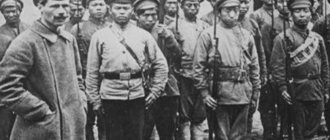Citizens of the Russian Federation who are convicted of a crime have the right to count on acts of mercy from the state, which are designed to alleviate the fate of the criminal and are provided for by law. Such procedures include amnesty and pardon, which allow the offender to be released from prison or the criminal case against him to be terminated.
What is a pardon?
According to Art. 85 of the Criminal Code of the Russian Federation, pardon is an act of the President, according to which a specific person who has committed a crime can be released from the sentence imposed on him.
This procedure allows a citizen to be released from prison before the end of his sentence, the term of imprisonment to be reduced, or the punishment to be replaced with a more lenient one. If the pardon concerns those who have been released from prison, they can count on early expungement of their criminal record.
It is necessary to be aware of the differences between pardon and amnesty, since the second concept includes release in relation to an unlimited number of persons who have been convicted of certain offenses. Pardon is always individual and aimed at an individual specific person. Only the President has the right to sign an act of pardon, therefore the act has a law enforcement nature and not a normative one.
An important point: a pardon does not eliminate the fact that a crime has been proven by a specific person and does not in any way affect the court verdict. This act does not mean rehabilitation. Pardon is applied to a sentenced citizen and is a specific method of release from criminal liability imposed by the court.
People who have never committed any wrongdoing may naturally doubt whether the criminal deserves mercy and pardon? The answer is simple: at the moment, not only young “thugs” are in prison, but also pregnant women, mothers of many children, disabled people, citizens of retirement age, as well as people with serious illnesses, including fatal ones, who need relief from their fate . This is humane and consistent with constitutional human rights priorities.
Pardon
Documents for submitting a request
The petition for pardon should be submitted to the administration of the colony where the convicted person is serving his sentence. Management accepts the request and registers it. Next, the management of the institution is obliged to prepare documentation. To submit an application you need the following package of documents:
- medical certificate about the applicant’s health status;
- notification of the time the court decision comes into force;
- an extract of applications up to this point;
- information on compensation for material damage to the victim;
- a questionnaire filled out by the convicted person;
- characteristics from the institution where behavior, attitude to work and training are assessed, rewards and penalties are indicated;
- health certificate of the prisoner's close relatives;
- petition from the team from the place of employment before conviction;
- extracts from the institution about the need for forgiveness;
- information on parole and amnesty regarding this prisoner;
- presentation from the administration.
Read also: Sample petition to reduce a fine to the tax authority
Completion of documentation on behalf of the administration should take 10-20 days after registration of the application. The severity of the crime does not affect the result of registering a petition in a correctional institution.
You can ask the colony administration for a sample application form. When registering, please provide the following information:
- FULL NAME. prisoner;
- information about birth and citizenship;
- residential address before imprisonment;
- position and place of employment;
- list of previous convictions (if any);
- previous pardon, release under amnesty or parole;
- information about the sentence;
- the period of the sentence imposed;
- marital status, presence of children, information about them;
- data on participation in military conflicts;
- a list of other important circumstances;
- signature of the head of the institution, date.
The application form must indicate the date of submission.
What does the law say?
Pardoning citizens in Russia is based on the provisions of current laws and regulations contained in the Constitution and the Criminal Code (Article 85). In addition to them, the most important role is played by Presidential decrees, which are aimed at addressing issues of mercy towards prisoners.
In accordance with the Constitution of the Russian Federation, the highest value for the state is the rights and freedoms of its citizens. Therefore, persons convicted of crimes of varying gravity have the right to ask for a reduction in their sentences. A significant portion of prisoners resort to asking for a pardon; current laws in no way limit convicted citizens from applying for a pardon. Russians, stateless persons, and foreigners who are in someone else’s prison for acts committed on the territory of the Russian Federation have this right.
Judicial practice under Article 85 of the Criminal Code of the Russian Federation
Appeal ruling of the Appeal Board of the Supreme Court of the Russian Federation dated 03/02/2021 N APL21-18
Saifaev T.S. appealed to the Supreme Court of the Russian Federation with an administrative claim to challenge the Decree, citing the fact that the Decree applied to him, affecting his rights, freedoms and obligations, in violation of the provisions of Part 3 of Article 15, Part 2 of Article 24 of the Constitution of the Russian Federation and the Presidential Decree Russian Federation dated May 23, 1996 N 763 “On the procedure for publication and entry into force of acts of the President of the Russian Federation, the Government of the Russian Federation and regulatory legal acts of federal executive bodies” (hereinafter also referred to as Decree N 763) was not officially published for public information and therefore could not be used. He believes that the President of the Russian Federation, not being a judicial authority, exceeded his powers by imposing on him the final punishment in the form of life imprisonment, since at the time of the commission by T.S. Sayfaev. crimes and sentencing, the law provided for the replacement of the death penalty by pardon for a period of 15 years, and the imposition by the court of punishment in the form of life imprisonment for those crimes of which he was found guilty by a court verdict was not provided for by law. The decree containing a list of pardoned persons does not comply with the requirements of Part 1 of Article of the Criminal Code of the Russian Federation, by virtue of which a pardon is carried out in relation to an individually identified person.
Decision of the Supreme Court of the Russian Federation dated November 23, 2020 in case No. AKPI20-739
Saifaev T.S. appealed to the Supreme Court of the Russian Federation with an administrative claim to challenge the Decree, citing the fact that the Decree applied to him, affecting his rights, freedoms and obligations, was in violation of the provisions of Part 3 of Article 15, Part 2 of Article 24 of the Constitution of the Russian Federation and the Decree President of the Russian Federation dated May 23, 1996 N 763 “On the procedure for publication and entry into force of acts of the President of the Russian Federation, the Government of the Russian Federation and regulatory legal acts of federal executive bodies” (hereinafter referred to as Decree N 763) was not officially published for public information , and therefore could not be used. At the court hearing T.S. Sayfaev supplemented the grounds for the administrative claim, pointing out that the President of the Russian Federation, not being a judicial authority, exceeded his powers by imposing the final punishment on the administrative plaintiff in the form of life imprisonment, since at the time he committed the crime and was sentenced, the law provided for the replacement of the death penalty by way of pardon for a period of 15 years, and the court's imposition of a sentence of life imprisonment for those crimes for which he was found guilty by a court verdict was not provided for by law. According to the administrative plaintiff, the Decree does not comply with the requirements of Part 1 of Article of the Criminal Code of the Russian Federation, by virtue of which pardon is carried out in relation to an individually identified person, since it contains a list of persons pardoned by this Decree.
Types of pardon
There are several types of pardon, which may be possible for various reasons. In many ways, the degree of pardon may depend on the severity of the crime committed, the personality of the person himself, and the period of restriction of freedom that was awarded by decision of the judicial authority.
At the moment, presidential and maternal pardons are most common.
- Maternal petition
- submitted by the prisoner’s mother, and if she is not there, then by the closest relatives. The goal is the release of a certain person who is serving a sentence in MLS. But without the request of the prisoner himself, the maternal pardon will not be considered. - Pardon of the President of the Russian Federation
- the petition is sent to the head of state by the prisoner himself or his family.
In certain circumstances, public organizations can also submit a petition for pardon; to do this, they must complete the petition in free form. Such a petition will be considered not by the President of the Russian Federation, but by a special commission located in all constituent entities of the Russian Federation.
Types of pardon
The Constitution of the Russian Federation states that every prisoner who has been punished for a crime has the right to personally appeal to the President to ask for a pardon and the opportunity to receive a pardon, regardless of the severity of the crime committed. The President is physically unable to personally consider all petitions, so such documents end up in special commissions, which carry out this most important responsibility. The same thing happens with maternal pardon.
Authorized employees must consider each appeal, carefully study the circumstances and grounds, then forward them to the Ministry of Justice of the Russian Federation, if the authenticity and literacy of the documents are beyond doubt. In addition to the petition itself, they also submit a biography and description of the prisoner, and a copy of the court verdict.
Any prisoner, except those under investigation, has the right to submit a petition for clemency to the President. This is explained by the fact that this category of citizens has not yet been sentenced, so the degree of their guilt and the severity of the sentence are still unclear.
Conditions for pardon
To make a positive decision on the petition of a convicted person, a number of factual and legal conditions must be met. The material conditions for release are not affected by what crime the person committed.
Pardon can be applied even to those who have committed a particularly serious crime. According to Part 3 of Art. 59 of the Criminal Code of the Russian Federation, even persons sentenced to death can count on life imprisonment or imprisonment for 25 years.
The Pardon Commission examines the petitions of convicted persons, taking into account the following factors.
- How the prisoner behaved while serving his sentences in the MLS.
- What is the length of the sentence served?
- What degree of danger does a prisoner pose to society upon release, based on the crime for which he is imprisoned?
- Is it possible to compensate for damages to those who suffered due to the crime of the petitioner?
In the process of studying an application for clemency, authorized members of the commission must take into account whether the citizen committed crimes during the probationary period (with a suspended sentence). The person’s health status, marital status and age are also taken into account. The total number of convictions is also important.
Conditions for pardon
Review procedure
The procedure is determined by a special Decree of the President of the Russian Federation dated December 28, 2001 No. 1500, which describes in detail the procedure for making decisions on applications for pardon.
Currently, in accordance with the Regulations approved by this Decree, special commissions have been created within each region or territory of Russia, which include at least 11 people with higher education who enjoy special respect among the population. These commissions make a preliminary decision on the received petition and draw up a conclusion on its validity. The same Regulations abolished the pardon commissions under the President of the Russian Federation that were in force before 2001.
Question: Suppose the convicted person has drawn up a petition for pardon, where should it be sent?
The regulation provides that the application of a person held in conditions of isolation from society must be registered with the administration of the colony or pre-trial detention center (depending on the location of the applicant). After which the application is sent to the Federal Penitentiary Service Office in the region, all relevant documents are attached to it: sentences, subsequent decisions of courts of various instances, information about the state of health, a description of the time spent in isolation - that is, all the information that the institution has. In this case, the convicted person is notified in writing that the application has been sent to the Federal Penitentiary Service (a copy must be sent to the prosecutor).
It is unacceptable not only to refuse to accept an application, but also to refuse to send correspondence of this kind.
In some cases, the convicted person turns to the administration of the penal colony with a request to include certain documents that are important for resolving the issue of pardon, but for some reason are not in the person’s hands. This is acceptable, and the administration has no right to refuse to provide the characterizing materials at its disposal.
When a conditionally convicted person asks for pardon , his application is registered with the penal inspection and then sent to the territorial body of the regional penal system.
If an applicant who has already served his sentence asks for the removal of a criminal record , he sends his appeal directly to the commission, the address of which can be found on the website of the regional Government. For example, the commission for the Moscow region is located at Prospekt Mira, 72. Here you can find out information about its composition, meeting dates and persons recommended for pardon.
The application of a convicted person held in places of deprivation of liberty, together with additionally collected material, must be sent to the territorial body for the execution of punishment (usually the Department of the Federal Penitentiary Service for the region, territory) within 10 or 20 days (in cases of crimes of minor and medium gravity or serious crimes, respectively). If for some reason the administration did not send the material for pardon (for example, this became clear after a request to the Federal Penitentiary Service), it is necessary to appeal the actions of the officials to the prosecutor's office or to the court.
Documents received by the FSIN Department from the colony must be sent to the commission no later than within a week. In addition, the Federal Penitentiary Service is entrusted with the obligation to report every month reliable information about all received applications of this nature to the Presidential Administration, whose employees prepare a quarterly report on information about applications for the first person of the state.
The duty of the commission is to prepare a conclusion within a month on the possibility or impossibility of satisfying the request of the convicted person. In fact, such a conclusion is of paramount importance for deciding the fate of the person who applied for leniency, since a positive decision in the future can be made precisely on the application that was approved by the commission.
The Regulations on the Pardon Procedure provide a list of circumstances that are always taken into account by the commissions when giving their conclusions:
- the nature and degree of danger of the crime . Thus, those convicted of crimes of minor gravity, without the use of violence, as well as for careless acts, can more likely count on having their request granted;
- the applicant’s behavior in the colony - the presence of even minor violations of the order of serving can become a decisive factor in refusing to satisfy the application;
- length of sentence served - the chances are greater for those convicted who, by the time the application was sent, had already served more than 2/3 of the total term of imprisonment;
- compensation for damage caused by a crime . Full compensation for damage caused by a selfish crime (theft, fraud, etc.) is always considered a big plus for the characteristics of a convicted person. For other categories of acts, compensation for moral damage is, of course, considered a positive criterion for a prisoner (for example, when, as a result of a beating, the cost of treatment and rehabilitation is voluntarily compensated);
- information about health (disability, serious illness), family information (no one to care for parents or children).
Other important information can be taken into account, including characteristics from other persons - neighbors, employer, educational institution, etc. All appeals from relatives and friends are also taken into account and can be considered along with the main statement of the convicted person. In addition, at the initiative of the commission, a request may be made to the FSIN institution for the submission of additional documents. Such a request for a colony must be fulfilled within 10 days.
The commission's conclusion is sent to the highest official of the region - usually the Chairman of the Government, Governor or Head of the municipality. In turn, the highest official of the executive body of the region or territory makes a proposal to the President of the Russian Federation. The list of persons who were considered eligible for pardon is published on the website of the Government of the constituent entity of the Russian Federation and in other media.
Who can become a contender?
Despite the unconditional right of every prisoner to seek clemency, there are certain restrictions. The following categories of persons will not count on a positive outcome of the application.
- Malicious violators of discipline in places of detention.
- Those who intentionally broke the law while on probation during the period of probation.
- Prisoners who were amnestied from serving the remainder of their sentence.
- Those who were released from serving on parole.
If a prisoner was spared punishment by an act of pardon, but again entered the criminal path and committed an atrocity, repeated mercy in relation to him is impossible. Appeals from those whose punishment has already been replaced with a more lenient one will not be considered.
Typology of pardons
In 2021, pardons can be classified based on their consequences:
- the applicant was released from prison and his sentence was terminated;
- the period of stay in places of detention has been reduced for the convicted person;
- the perpetrator was given a more lenient form of punishment;
- the period of criminal record previously served has been removed.
Another version of the typology is determined by the identity of the submitter of the request for clemency. According to this typology, the following options are distinguished:
- mother's petition;
- Act of the President;
- petition from society;
- petition of the convicted person himself.
The petition coming from the mother is a cry of despair. The desire of a mother to protect her son/daughter from punishment, regardless of the severity of the act committed, is very common. The commissions preferred to accept the application of the mother of the person who violated the law as priority. Experts advise accompanying your own petition for pardon addressed to the President with a letter from your mother. However, recently the effectiveness of the mother’s petition has been gradually decreasing. However, it is better to draft a letter from the mother to enhance the impact of the clemency petition. You can ask a lawyer for a sample document or find it online. If the mother has health problems, certificates about this are attached to her application.
Read also: Petition for awarding a certificate of honor and prize: sample drafting
A presidential decision to pardon may apply to any person who has been sentenced to punishment. The absence of representations to the President from administrative commissions cannot become an obstacle to forgiveness. As a general rule, a petition is still necessary, as well as a presentation with a conclusion whether to grant the petition or not.
According to practice, petitions are submitted on behalf of the convicted person or his human rights defender. But there are situations when a petition is drawn up from the public. A person who has committed a crime is accepted by the public as innocent, for example, when committing murder in self-defense. In this case, a personal petition is accompanied by a petition from society, i.e. groups of people.
Pardon and amnesty: what is the difference?
Expungement of a criminal record is an extremely important issue for most prisoners, as this action cancels any legal consequences that are associated with a criminal record. It is not easy to look for work and create normal social connections if a person is labeled as a “prisoner.”
A criminal record is expunged automatically upon completion of the sentence and a certain amount of time has passed after that. Withdrawal can be carried out ahead of schedule, which is possible by decision of the judicial authorities and by an act of pardon.
According to Art. 84 of the Criminal Code of the Russian Federation, amnesty is understood as a state act that aims to mitigate the punishment for an indefinite number of prisoners who have been convicted of a variety of crimes. Suspects, accused and defendants can be released from criminal liability within the framework of the state program.
Pardon and amnesty
An amnesty allows convicts to be released before the end of their sentence, significantly reduce the time they spend in prison, or replace the punishment with a less severe measure. If those who served time and were released are included in the amnesty, their criminal record is removed.
According to Art. 103 of the Constitution of the Russian Federation, amnesty can only be declared by members of the State Duma. This means that an act of mercy is impossible at the regional level (Part 1, Article 84 of the Criminal Code of the Russian Federation).
In practice, political and criminal amnesty is provided. The first implies the state’s refusal to prosecute a person or persons accused of mass crimes. If we talk about the criminal law, it is aimed at mitigating the punishment of citizens who are grouped into a category based on a number of characteristics. For example, an amnesty for juvenile offenders or convicted single mothers.
Pardon is only possible on an individual basis in relation to a specific person convicted of a certain act. Only the President of the Russian Federation has the right to pardon an appealing citizen (Article 89 of the Constitution). His prerogative is the release of the prisoner or the replacement of the existing sentence with a commuted one.
A pardon can only be carried out at the request of one person, which distinguishes it from an amnesty, which is applicable to a number of persons without their consent and regardless of their wishes. If a citizen is prosecuted and receives an amnesty, the case can be terminated only with his consent.
Legal consequences
There are a number of legal consequences that arise following the entry into force of an amnesty and pardon. This may include:
- removal of criminal records from citizens;
- releasing suspects from criminal liability if they are brought to it as a result of a preliminary investigation or trial;
- change of punishment to a more lenient form;
- removal of criminal liability.
Replacing a convicted person with a more lenient punishment as a result of an amnesty or pardon may mean reducing the sentence or assigning correctional labor, changing the conditions of detention or reducing the fine.
Legal consequences
The amnesty is implemented through criminal executive and law enforcement agencies. When an act is issued, all institutions of the penal system must provide a circle of persons who meet the criteria for amnesty and make an appropriate decision. This procedure applies to judges and investigators who are obliged to stop conducting cases regarding those who are included in the amnesty.
The pardon is carried out immediately after the issuance of the act and does not require the collection of any documents regarding the applicant.
Pardon in the Russian Federation: who issues it?
Only the President has the right to pardon prisoners who have applied to the pardon commission. The amnesty is appointed by the State Duma of the Russian Federation.
In 2001, the authorities and human rights activists implemented the institution of commissions on petitions for clemency. Until this time, petitions from convicts were considered at the rate of several thousand per year. After the introduction of new procedures, the percentage of positive responses to petitions decreased. This helped eliminate the possibility of pardoning criminals who pose a danger to the public, repeat offenders and those whose acts are characterized by sophisticated cruelty. Pardons in the Russian Federation in recent years are an infrequent phenomenon and are isolated in nature.
Recommendations for relatives
A petition for pardon may be submitted to the President of the Russian Federation and the head of the correctional institution. In practice, any document or appeal submitted by family and friends must be reviewed, registered and taken into account. Relatives can submit an appeal after a petition from the convicted person himself.
It is worth emphasizing the noteworthy merits of the convicted person, indicating special, important circumstances in connection with which he can and should be pardoned.
Relatives may inquire about the status of sending materials, as well as the stage of their consideration.
Sample petition to the President for pardon
The petition is created in writing arbitrarily, but to the point.
First, you need to register the details of the addressee - full name of the President of the Russian Federation - and the applicant. The addressee must indicate his passport information, date of birth, and place of stay. All this is written at the top right - in the “header”.
In the center of the sheet you need to indicate the name of the document - Petition. Below it is necessary to briefly and informatively state who is applying, for what reason, for what and by whom he was convicted, what is the term of the sentence, what is the date of the start of the actual serving of the term, what is the full period of being in isolation.
Afterwards, you need to explain the essence of the appeal and give reasons why the person should be pardoned. This is the degree of guilt of the victim, advanced age, presence of illnesses, death of the breadwinner or illness (if there are dependents in the family), lack of previous criminal records, positive characteristics from the place of previous employment or study.
It is very important to receive a positive reference from the administration of the institution where the prisoner is serving his sentence, and also to emphasize in the letter sincere repentance for what he has done. A signature and number are placed at the bottom.
Before creating a petition, it is necessary to remember all the factors that can positively influence the commission’s decision on a pardon.
Sample petition to the President for pardon
Decision and timing
If the petition is addressed to the President, it will be considered by the staff of the Pardons Office. If the head of state makes a positive decision, the Department will issue a decree, which will be sent for execution to a constituent entity of the Russian Federation within 14 days. The same will be done in the territorial justice authorities in the region where the prisoner is in MLS.
If the petition is rejected, the offender will be notified by the head of the administration or the head of the petition commission. The next application can be submitted no earlier than one year from the date of the negative notification. An exception is the occurrence of special circumstances that may affect the outcome of the application.
Who will the President pardon and not pardon?
Decree of the President of the Russian Federation No. 1500 of December 28, 2001 “On pardon commissions in the territories of the constituent entities of the Russian Federation” (hereinafter, the Decree) determines who can be pardoned. These are persons serving sentences in Russia:
- residents convicted by Russian courts who have committed a criminal offense;
- persons convicted by courts of a foreign state;
- citizens who have served a sentence imposed by the courts and have an outstanding criminal record.
The President of the Russian Federation declares an amnesty and pardons convicts if there are serious grounds and compelling reasons for this. Pardon does not apply:
- to convicts who committed an intentional crime during the probationary period of probation assigned to them by the court;
- to persons who maliciously violate the regulations for serving a sentence;
- to those previously released on parole, under an amnesty or under an act of pardon;
- to those people to whom the court sentenced a more lenient punishment for previously committed offenses.
Instructions and methods that ensure the activities of pardon commissions throughout the country are developed and controlled by the Presidential Office for Ensuring the Constitutional Rights of Citizens. This body is also involved in preparing draft decisions made by the Russian leader.










